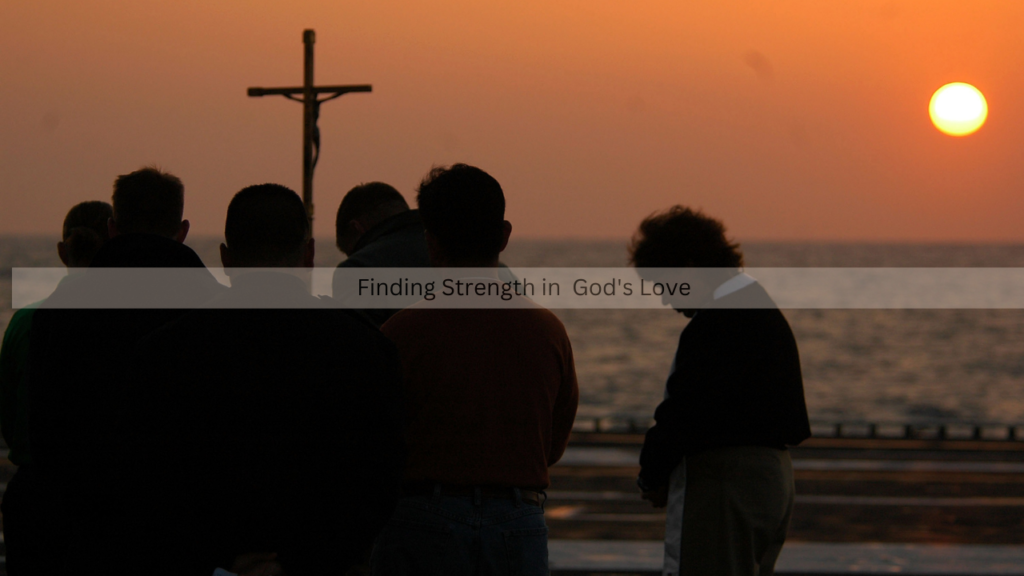
Sobriety is a journey of healing, transformation, and self-discovery, often marked by moments of difficulty and triumph. For many individuals, the path to lasting sobriety can feel overwhelming and uncertain. However, faith in God’s love can serve as a powerful source of strength, guidance, and hope throughout this journey. Finding strength in God’s love doesn’t just support recovery; it offers a foundation for lasting freedom from addiction, renewal of purpose, and deep inner peace.
The Power of Surrender
Addiction often thrives in isolation and hopelessness, leaving individuals feeling powerless and trapped. One of the core principles in Christian faith is the act of surrendering to God’s will. By acknowledging personal limitations and inviting God’s love into the recovery process, individuals begin to release the control they may have tried to maintain over their lives and addictions.
In Matthew 11:28, Jesus invites, “Come to me, all who labor and are heavy laden, and I will give you rest.” This scripture speaks to the heart of surrender: recognizing that God’s love is greater than any burden we may carry. Letting go of the need to fix everything alone allows for healing, as God’s love steps in to offer guidance, compassion, and unwavering support.
Finding Strength in Weakness
Recovery from addiction is a long and arduous process, often filled with setbacks and moments of vulnerability. It’s easy to feel discouraged when mistakes happen or progress seems slow. But in 2 Corinthians 12:9, Paul writes, “My grace is sufficient for you, for my power is made perfect in weakness.” This profound statement reveals a spiritual truth: our moments of weakness are opportunities for God’s love to shine through and uplift us.
God’s love is unconditional and unfailing, and it can transform even the most broken parts of ourselves. In times when we feel weak or lost, it’s important to remember that God’s strength is available to carry us through, enabling us to persevere, overcome temptation, and stay focused on sobriety.
Building a Relationship with God
Sobriety is not just about abstaining from substances; it’s about creating a new, meaningful life. Developing a personal relationship with God is one of the most powerful ways to rebuild this sense of purpose. Prayer, meditation, and engaging with scripture help foster a deep connection with the Creator, providing a sense of security and peace that addiction cannot offer.
Prayer becomes a dialogue with God where individuals can express their fears, doubts, and gratitude, all while seeking divine guidance. Psalm 46:1 reminds us that “God is our refuge and strength, an ever-present help in trouble.” This constant presence offers assurance that, no matter how challenging the journey to sobriety may be, God is always near, providing strength and love.
A Supportive Faith Community
God’s love is not only experienced through personal spiritual practices but also through relationships with others. A supportive faith community can provide encouragement, accountability, and empathy during recovery. Fellow believers offer prayers, share testimonies of their own struggles and triumphs, and stand by individuals as they walk the road to sobriety.
In Ecclesiastes 4:9-10, we read, “Two are better than one… If either of them falls down, one can help the other up.” Engaging in a community of faith strengthens the foundation of sobriety by reminding individuals that they are not alone in their struggles, and that God’s love often manifests through the care and support of others.
Conclusion
Sobriety is a journey that requires both inner strength and external support. By turning to God’s love, individuals can find the strength they need to overcome addiction, experience healing, and embrace a life of purpose and peace. God’s love offers a source of unwavering strength, guidance, and hope, enabling those in recovery to walk a path toward lasting freedom from addiction.